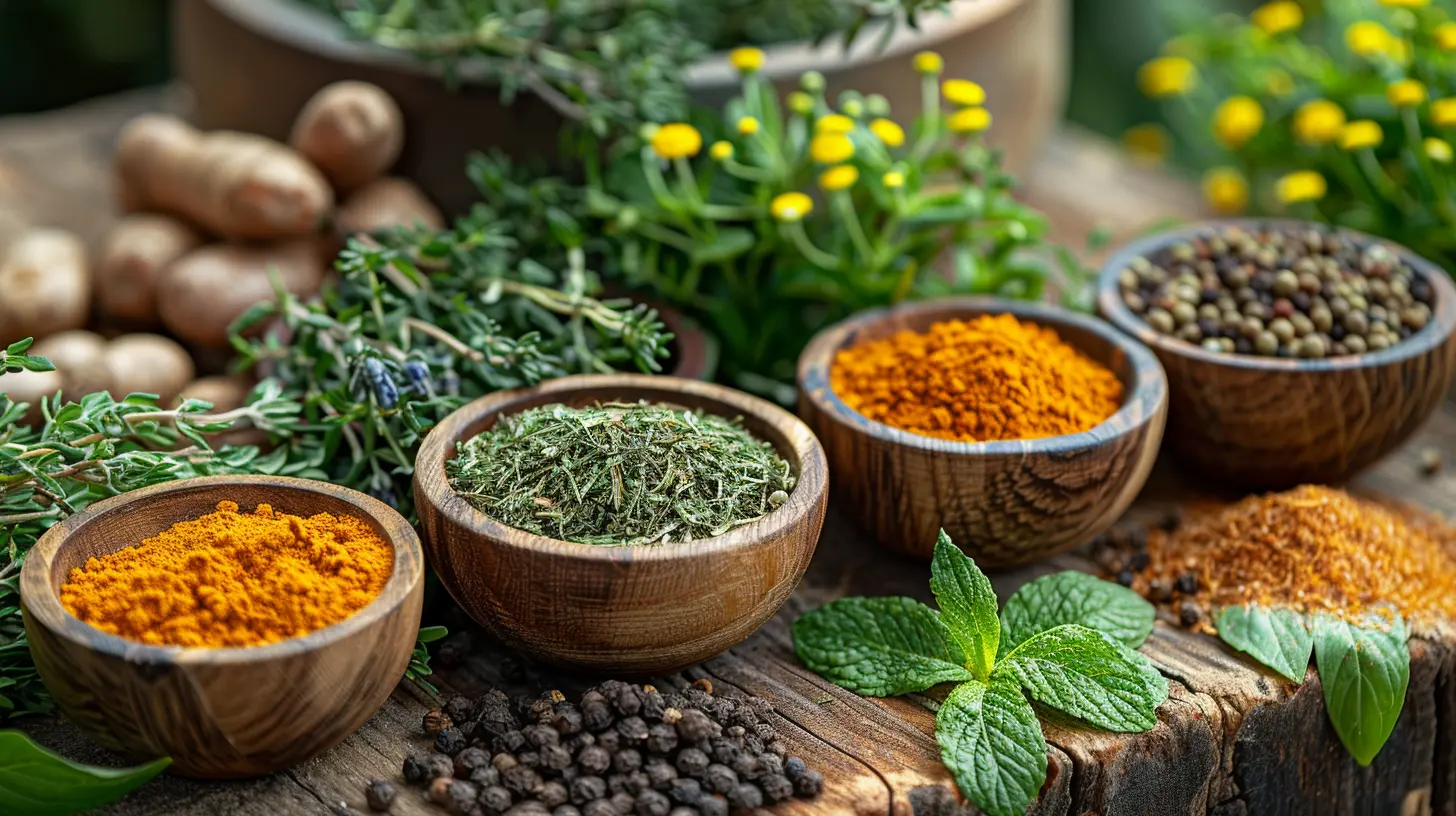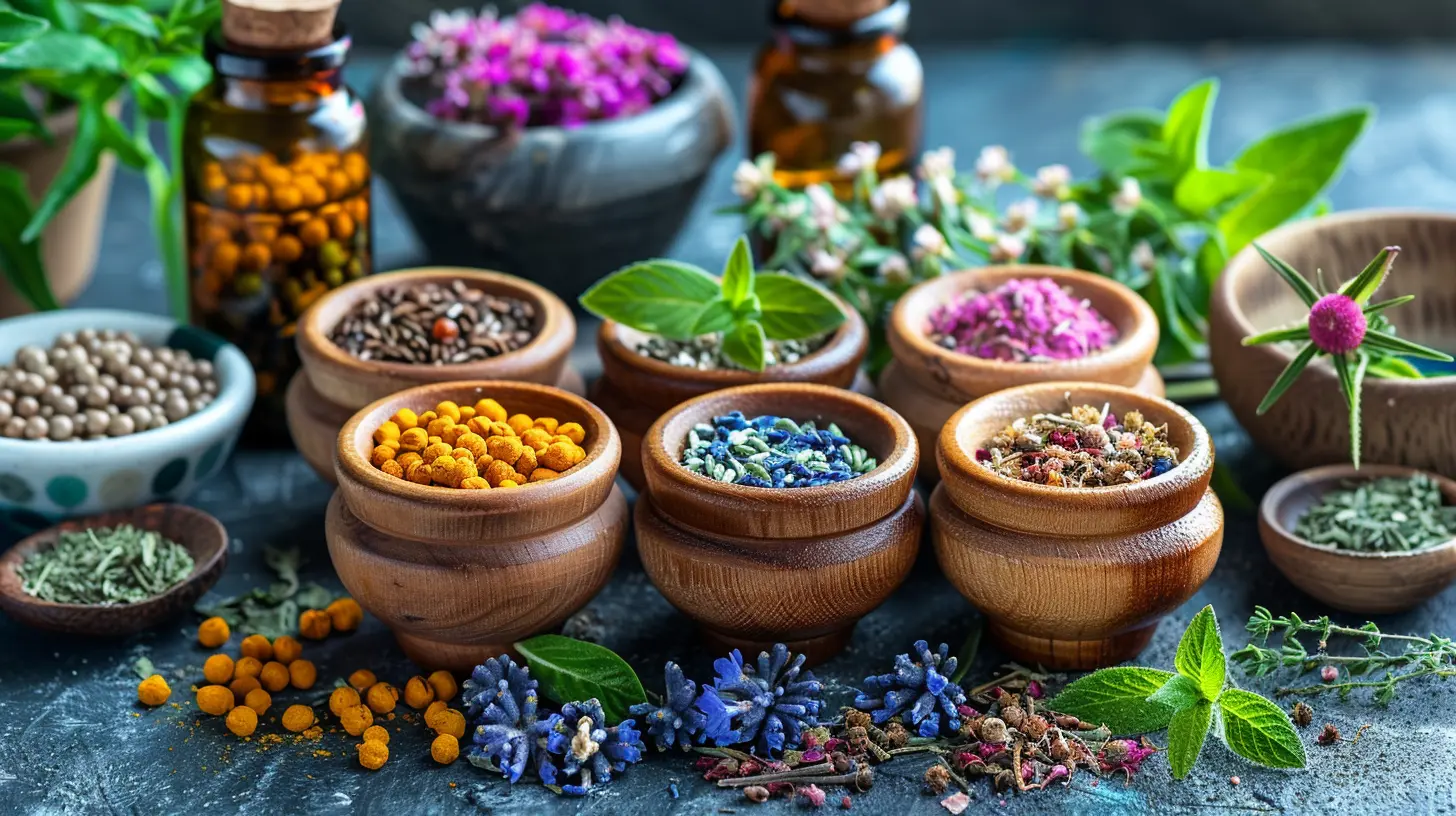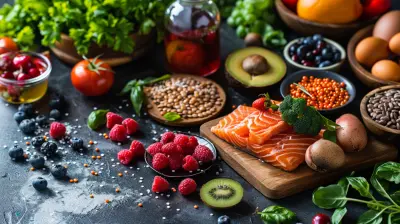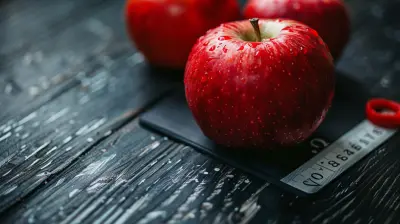Immune-Boosting Herbs: What the Science Says
25 May 2025
Ever find yourself wondering how to keep your immune system in tip-top shape, especially when cold and flu season rolls around? You're definitely not alone. While eating well, staying active, and sleeping enough are tried-and-true immune supporters, there’s another ancient way to give your body a fighting edge—herbs. Yep, those leaves and roots sitting quietly on your spice rack might just be little powerhouses of wellness.
Let’s dive into the fascinating world of immune-boosting herbs and what modern science actually says about them. Spoiler alert: Nature really does know what she’s doing.
Why Your Immune System Needs a Little Help
Okay, let’s keep it real—your immune system is like your body’s own personal security team. It’s constantly on alert, fending off viruses, bacteria, and whatever else tries to cause trouble. But just like any good team, it performs better when supported.Poor sleep, chronic stress, junk food, and modern pollution can drag your immune system down faster than you can say “achoo.” This is where immune-boosting herbs come into play. They’re like your backup squad—offering support when life gets a little too chaotic.
Top Science-Backed Immune-Boosting Herbs
Grab a cup of tea (maybe one infused with herbs?), and let’s talk about the MVPs of natural immune support.1. Echinacea: The Cold-Fighter
You’ve probably heard of echinacea—it’s a staple in almost every "get better soon" supplement.What the Science Says:
Research shows that echinacea can reduce the chances of catching a cold and may shorten its duration if you do catch one. A 2014 meta-analysis in The Cochrane Library concluded that echinacea might reduce the risk of recurring colds, especially if taken at the first sign of symptoms.
Why It Works:
The herb is packed with compounds like flavonoids that boost white blood cell activity and reduce inflammation—basically helping your immune system work smarter, not harder.
Best Way to Take It: Capsules, tinctures, or tea.
2. Elderberry: Antioxidant Powerhouse
Elderberry isn’t just a fancy syrup flavor—it’s a legitimate immune superhero.What the Science Says:
Studies suggest elderberry extract can dramatically reduce flu symptoms. One 2019 randomized trial published in The Journal of Functional Foods found travelers who took elderberry had significantly fewer cold episodes—and less severe symptoms.
Why It Works:
It’s rich in anthocyanins, that deep purple pigment with mega antioxidant power. These help tame inflammation and support the immune response.
Best Way to Take It: Syrups, gummies, or lozenges.
3. Astragalus: The Stamina Builder
Used in Traditional Chinese Medicine for centuries, astragalus strengthens your “Wei Qi”—that’s basically your body's energy shield.What the Science Says:
Scientific reviews like those in Phytotherapy Research highlight its immune-boosting and anti-inflammatory properties. It stimulates white blood cell production and may improve resistance to viruses.
Why It Works:
Astragalus contains polysaccharides, saponins, and flavonoids—compounds that support overall immune function and balance.
Best Way to Take It: Tinctures, broth-based tonics, or capsules.
4. Garlic: Nature’s Antibiotic
This kitchen staple is more than flavor—it’s medicine.What the Science Says:
Multiple studies show garlic enhances immune function and has antimicrobial effects. A 2001 study in Advances in Therapy found those who took garlic supplements had fewer and shorter colds.
Why It Works:
Allicin—the compound released when you crush garlic—is your main immunity ally. It’s antiviral, antibacterial, and anti-everything bad.
Best Way to Take It: Raw (if you’re brave), supplements, or infused into oil.
5. Turmeric: The Golden Root
Turmeric has been worshipped in Indian Ayurvedic medicine for a reason.What the Science Says:
Its key active compound, curcumin, has been shown to modulate the immune system and reduce inflammation. One study in Frontiers in Pharmacology even highlighted curcumin’s potential in managing viral infections.
Why It Works:
Curcumin is a potent antioxidant and anti-inflammatory. It helps the immune system respond better without overreacting.
Best Way to Take It: In golden milk, capsules, or raw with black pepper (which boosts absorption).
6. Ginger: The Immune Whisperer
Just like turmeric, ginger is another root that’s more powerful than it looks.What the Science Says:
Research published in International Journal of Preventive Medicine found ginger boosts immune response and helps ward off inflammation. It's also great for nausea, making it a go-to during flu bouts.
Why It Works:
Gingerol (yep, that’s a real thing) is the active compound that tackles inflammation and oxidative stress.
Best Way to Take It: Fresh tea, juices, or grated into soups.
7. Licorice Root: The Soothing Warrior
Not just a candy! Licorice root has serious medicinal clout.What the Science Says:
Studies in journals like Virus Research show licorice root contains antiviral properties and may help prevent replication of certain viruses.
Why It Works:
Its active compound, glycyrrhizin, soothes mucous membranes and regulates the body’s stress response, which helps keep your immune system cool under pressure.
Best Way to Take It: Tea, tincture, or capsule (but don’t overdo it—it can affect blood pressure).
8. Andrographis: The Immunity Accelerator
This lesser-known herb has a big reputation in the world of natural medicine.What the Science Says:
A study in Alternative Medicine Review revealed andrographis significantly reduces cold symptoms, especially if taken early. It’s known for shortening illness duration.
Why It Works:
It’s packed with phytochemicals that stimulate immune activity and fight off pathogens.
Best Way to Take It: Extracts or tablets.
Are Herbs Enough on Their Own?
Herbs are amazing, but let’s be clear—they’re part of the puzzle, not the whole picture. Think of them like your secret weapon, not your only defense. You still need a balanced diet, exercise, quality sleep, and stress management.And remember, consistency is key. Taking one dose of elderberry won’t magically bulletproof your immune system overnight. But mix these herbs into your daily wellness routine, and your body will thank you.
Quick Tips for Using Immune-Boosting Herbs
- Start Early: Many herbs work best when used at the first sign of illness or as a preventative measure.- Rotate Your Herbs: Just like you don’t eat the same food every day, don’t rely on one herb alone.
- Choose Quality: Go for organic, reputable brands to avoid contamination or additives.
- Talk To Your Doc: Especially if you’re on medications or have health conditions—herbs can interact with drugs.
Combine Herbs for a Power Punch
Ever thought of blending herbs for stronger effects? Here are a few awesome combos:- Elderberry + Echinacea = Cold & flu shield
- Turmeric + Ginger = Anti-inflammatory dream team
- Astragalus + Licorice Root = Stamina booster with stress support
Mixing them not only makes your tea more flavorful—it creates synergy that enhances their benefits.
Final Thoughts: Trust in Nature, Backed by Science
We often think modern problems need high-tech solutions, but sometimes, the answer is right in your garden or cabinet. Immune-boosting herbs offer gentle yet powerful support that bridges ancient wisdom with scientific validation.The next time you’re feeling run-down or preparing for a season change, turn to these natural allies. With consistent use and a healthy lifestyle, you’re giving your body the good stuff it needs to thrive—not just survive.
Your immune system is working hard for you every single second. The least we can do is give it the herbal hugs it deserves.
all images in this post were generated using AI tools
Category:
Immune SystemAuthor:

Laurie Barlow
Discussion
rate this article
3 comments
Levi McMeekin
This article effectively highlights the scientific backing behind immune-boosting herbs, emphasizing their potential benefits. A balanced approach, combining these herbs with a healthy lifestyle, maximizes their effects. Great insights!
June 12, 2025 at 2:31 PM

Laurie Barlow
Thank you for your insightful comment! I'm glad you found the article informative and appreciated the balanced approach to using herbs alongside a healthy lifestyle.
Drew Fletcher
Hidden in the shadows of nature, certain herbs hold secrets that could redefine our health. What if the ancient wisdom about these immune-boosters is more than folklore? Dive into the science and discover what lurks beneath.
May 26, 2025 at 4:05 PM

Laurie Barlow
Thank you for your insightful comment! Exploring the science behind these herbs indeed reveals fascinating potential for our health.
Pearl Bowers
While the article highlights promising herbs, it's essential to approach such claims critically. Scientific evidence varies; lifestyle factors and a balanced diet remain key for immune support.
May 26, 2025 at 4:02 AM

Laurie Barlow
Thank you for your insightful comment! I completely agree that critical evaluation and a balanced lifestyle are crucial for effective immune support.



